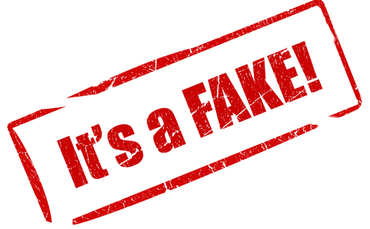Table of Contents
Introduction
In today’s digital age, the prevalence of fake businesses has become a concerning issue. These deceptive entities pose a significant threat to both the economy and consumers, necessitating a deeper understanding of their existence and impact.
Understanding the prevalence
Fake businesses have been on the rise, leveraging technological advancements and exploiting unsuspecting individuals. It is crucial to delve into the factors that contribute to their proliferation in order to address this growing concern effectively.
The impact its on the economy and consumers
The presence of fake businesses has detrimental consequences for both the economy and consumers. They undermine market integrity, erode consumer trust, and inflict financial harm. Examining these impacts can help shed light on the gravity of the issue.

Identifying
Identifying fake businesses is crucial in protecting oneself from falling victim to scams and fraudulent activities. By understanding the common characteristics and red flags associated with these deceptive entities, individuals can make informed decisions and avoid potential financial and emotional harm.
Common characteristics and red flags
Lack of verifiable contact information
One of the key indicators of a fake business is the absence of verifiable contact information. Legitimate businesses prioritize transparency and provide accurate details such as a physical address, phone number, and email address. In contrast, fake businesses often provide incomplete or inaccurate contact information, making it difficult for customers to reach them or seek assistance when needed.
Unrealistic promises or claims
Fake businesses often lure unsuspecting customers with promises that seem too good to be true. They make exaggerated claims of extraordinary benefits, guaranteed outcomes, or unrealistic discounts. These claims are designed to entice individuals into engaging with the business, only to later realize that the promises were empty and deceptive.
Poor online presence or inconsistent branding
Establishing a strong online presence is crucial for legitimate businesses in today’s digital age. However, fake businesses often lack a professional website or social media presence. Their online platforms may exhibit poor design, lack of coherent branding, or inconsistent information across different channels. These inconsistencies raise suspicions about the credibility and legitimacy of the business.
Fake reviews and testimonials
To appear legitimate, fake businesses may fabricate positive reviews and testimonials. These reviews often lack specific details or appear overly positive, lacking any negative feedback or constructive criticism. Conducting thorough research and looking for signs of suspicious reviews can help individuals identify whether the business has genuine customer feedback or if it is engaging in deceptive practices.
Case studies: High-profile examples of fake businesses
Examining high-profile examples of fake businesses can provide valuable insights into their operations, tactics, and the impact they have had on individuals and the economy. These case studies serve as cautionary tales, helping individuals recognize the patterns and strategies employed by fake businesses.
By studying real-life examples, individuals can learn from the experiences of others who have been deceived, understand the methods employed by scammers, and become more vigilant in identifying and avoiding fake businesses.
Overall, recognizing the common characteristics and red flags associated with fake businesses is crucial in protecting oneself and making informed decisions. By staying vigilant and conducting due diligence, individuals can safeguard their finances, personal information, and emotional well-being from the dark reality of fake businesses.
The Mechanics Behind Fake Businesses
To effectively combat fake businesses, it is crucial to understand the mechanics behind their operations. By exploring the tactics they employ, we can better equip ourselves to identify and protect against their deceptive practices.
Creating a fake business entity
Fake businesses often employ various techniques to create a façade of legitimacy. They may register under false identities, forge official documents, or manipulate public records, making it challenging to identify their true nature.
Tactics employed by fake businesses
Phishing and identity theft
False businesses engage in phishing attacks to deceive people into divulging particular data similar as watchwords, credit card details or social security figures that can also be used for fraudulent conditioning.
fake products and services
Many fake businesses offer counterfeit products or services, exploiting the demand for popular brands or high-quality goods. These counterfeit items can be harmful, substandard, or simply nonexistent.
Pyramid schemes and Ponzi schemes
Some fake businesses operate under the guise of legitimate investment opportunities, promising quick and lucrative returns. However, these schemes rely on recruiting new participants rather than generating sustainable profits, leading to inevitable financial losses for those involved.
Impersonation and fake identities
Fake businesses may impersonate well-known brands or individuals, using their established reputation to gain trust and deceive unsuspecting customers. This tactic can make it challenging for individuals to differentiate between genuine and fake entities.
The Consequences of Engaging with Fake Businesses
Engaging with fake businesses can have severe repercussions for individuals, both financially and emotionally. Understanding these consequences can serve as a deterrent and encourage individuals to exercise caution when interacting with unfamiliar businesses.
Financial losses and scams
Individuals who fall victim to fake businesses often suffer significant financial losses. Scammers exploit trust and manipulate individuals into making payments for nonexistent products or services, leaving victims without recourse.
Legal implications and regulatory challenges
Fake businesses operate outside the boundaries of the law, and their actions can have legal implications. However, bringing them to justice poses challenges due to jurisdictional issues, lack of evidence, and the complexity of investigating digital crimes.
Psychological and emotional impact on victims
Being defrauded by a fake business can have a profound psychological and emotional impact on victims. They may experience feelings of betrayal, anger, shame, and a loss of trust in both businesses and online platforms.
The Fight Against Fake Businesses
Combatting the menace of fake businesses requires collective efforts from various stakeholders. Governments, businesses, and individuals all play crucial roles in implementing preventive measures and creating awareness to minimize the impact of these deceptive entities.
Government efforts and regulations
Governments around the world are taking steps to curb fake businesses. Strengthening laws, increasing penalties for fraudulent activities, and enhancing cooperation among law enforcement agencies are some measures employed to combat this issue.
Role of consumer awareness and education
Raising awareness among consumers about the existence and tactics of fake businesses is essential. Educating individuals about red flags, safe online practices, and the importance of conducting due diligence can empower them to make informed decisions and avoid falling victim to scams.
Collaboration between businesses and platforms
Legitimate businesses and online platforms have a responsibility to protect their users from fake businesses. Collaborative efforts can include implementing robust verification processes, enhancing user reporting mechanisms, and promptly addressing fraudulent activities.
Strategies to Protect Yourself from Fake Businesses
To safeguard oneself from the risks posed by fake businesses, it is vital to adopt proactive measures and exercise caution when engaging with unfamiliar entities.
Verifying the legitimacy of businesses
Conducting background research
Before transacting with a business, conduct thorough research to verify its legitimacy. Check for licenses, registrations, and affiliations with reputable organizations or industry bodies.
Checking online reviews and ratings
Explore online reviews and ratings of the business from trusted sources. Genuine customer feedback can provide insights into the quality of products, services, and overall customer satisfaction.
Examining trust indicators (certifications, awards, etc.)
Look for trust indicators such as certifications, awards, or seals of approval that demonstrate the business’s commitment to quality and customer satisfaction. These indicators can help differentiate genuine businesses from fake ones.
Secure online practices and personal data protection
Using secure payment methods
When making online transactions, use only secure payment methods such as credit cards or established payment gateways that offer buyer protection. Never disclose sensitive financial data through untrustworthy channels.
Strengthening passwords and using two-factor authentication
Protect your online accounts by creating strong passwords with unique identifiers and activating two-factor authentication whenever possible – it adds another layer of protection against potential unauthorised access and will lower risks of hacking attempts.
Recognizing and avoiding phishing attempts
Stay vigilant against phishing attempts by verifying the legitimacy of emails, messages, or websites before providing any personal or financial information. Be cautious of unsolicited communications and suspicious links.
Summary: Shedding Light on the Fake Business Epidemic
The prevalence of fake businesses poses a significant threat to individuals, the economy, and consumer trust. By understanding their characteristics, tactics, and consequences, individualities can protect themselves and contribute to the fight against these deceptive realities.
Questions and Answers( FAQs)
What are some indicators of a fraudulent business?
Common signs of a fake business include lack of verifiable contact information, unrealistic promises or claims, poor online presence or inconsistent branding, and fake reviews or testimonials.
How can I report an illegal business to authorities?
Contacting law enforcement, consumer protection organizations or government bodies responsible for overseeing businesses will allow you to report an illegitimate business.
What legal actions can be taken against fake businesses?
Legal actions against fake businesses can include filing a complaint with law enforcement, initiating civil lawsuits, and cooperating with regulatory authorities to provide evidence of fraudulent activities.
How can I recover my financial losses from a fake business?
Recovering financial losses from a fake business can be challenging, but individuals can explore legal options, seek assistance from consumer protection agencies, and report the incident to their financial institution.
What steps can I take to protect my personal information from fake businesses?
To protect personal information from fake businesses, individuals should adopt secure online practices, use strong passwords, avoid sharing sensitive information through insecure channels, and stay vigilant against phishing attempts.

